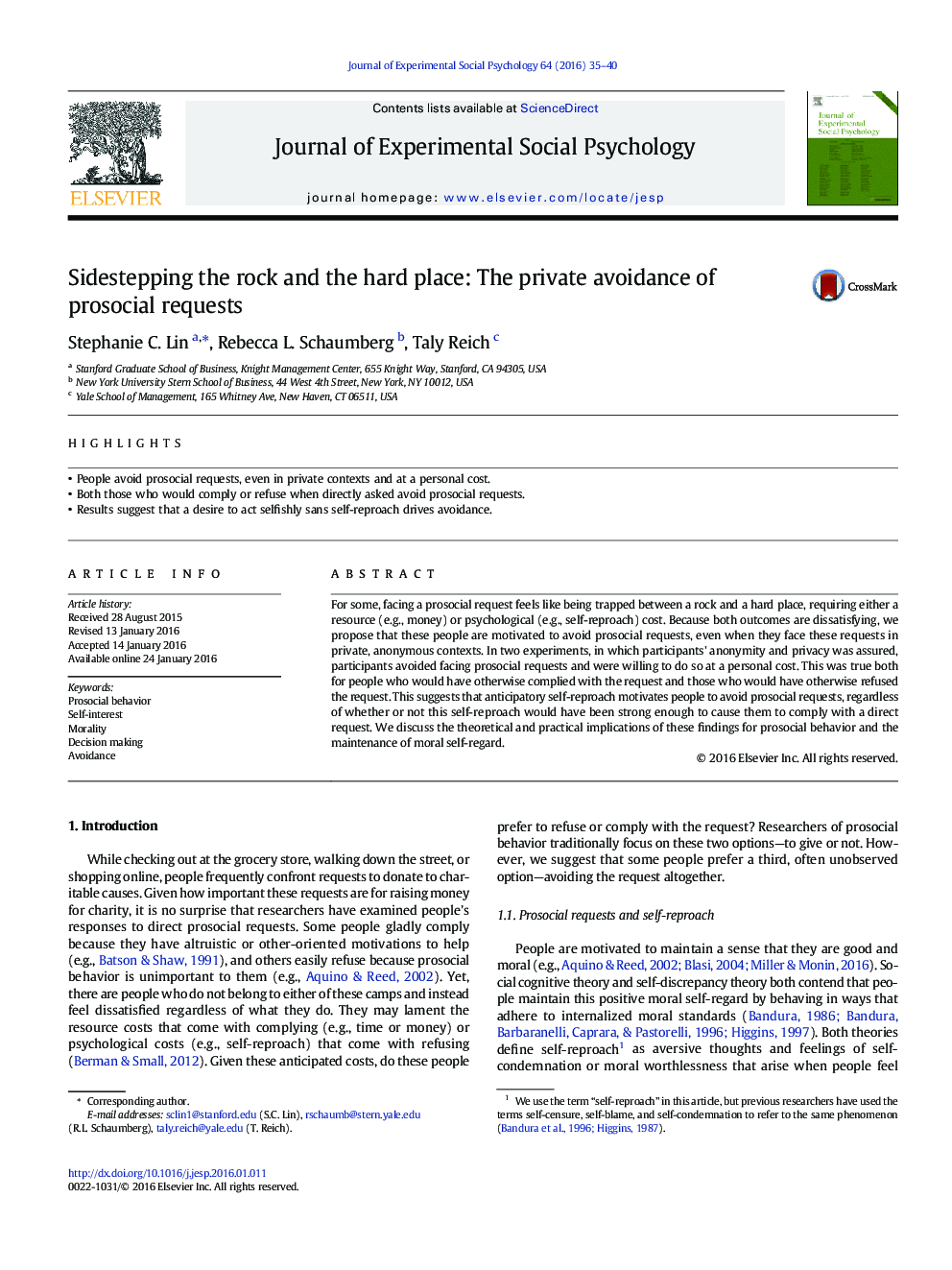| Article ID | Journal | Published Year | Pages | File Type |
|---|---|---|---|---|
| 947692 | Journal of Experimental Social Psychology | 2016 | 6 Pages |
•People avoid prosocial requests, even in private contexts and at a personal cost.•Both those who would comply or refuse when directly asked avoid prosocial requests.•Results suggest that a desire to act selfishly sans self-reproach drives avoidance.
For some, facing a prosocial request feels like being trapped between a rock and a hard place, requiring either a resource (e.g., money) or psychological (e.g., self-reproach) cost. Because both outcomes are dissatisfying, we propose that these people are motivated to avoid prosocial requests, even when they face these requests in private, anonymous contexts. In two experiments, in which participants' anonymity and privacy was assured, participants avoided facing prosocial requests and were willing to do so at a personal cost. This was true both for people who would have otherwise complied with the request and those who would have otherwise refused the request. This suggests that anticipatory self-reproach motivates people to avoid prosocial requests, regardless of whether or not this self-reproach would have been strong enough to cause them to comply with a direct request. We discuss the theoretical and practical implications of these findings for prosocial behavior and the maintenance of moral self-regard.
